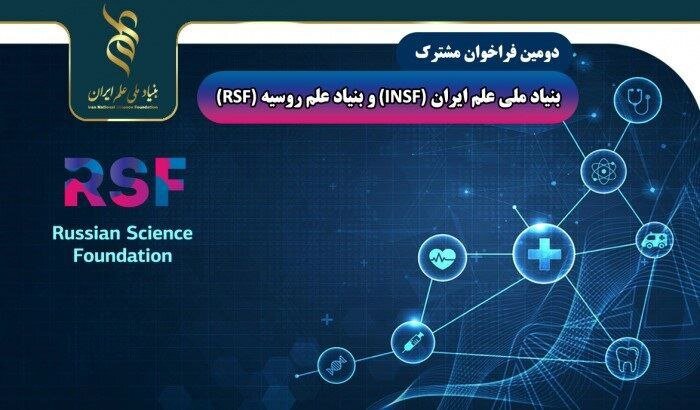INSF, RSF to support joint research projects

TEHRAN – Iran and Russia will support the implementation of 10 research projects following the second joint call by the Iran National Science Foundation (INSF) and the Russian Science Foundation (RSF).
The grant will be allocated on competitive basis for scientific and technical programs and projects in the following fields: Chemistry and material sciences, like smart materials, biomaterials, rare earth minerals, batteries, and superconductors, Biology and life sciences, such as biology, biotechnology, and microbiology, and Basic research for medicine.
Priority support will be given to the projects that will provide for the formation of a scientific and technical reserve in priority areas of scientific and technological development for the most important science-intensive technologies as well as the creation and transfer to a technology of prototypes, product samples, creation of new or improvement of applied technologies, the possibility of further development of project through other instruments of state or extra budgetary financing.
Iranian universities are exploring the potential for developing scientific and research collaborations with Russian institutions under the strategic partnership between the two countries.
Based on the comprehensive agreements between the top universities of Iran and Russia, the two sides are committed to furthering long-term and constructive relations in higher education, technology, and innovation.
The establishment of the secretariat for communication between the universities of the two countries is one of the major measures taken. Of course, secretariats and inter-university collaborations should be more active than in the past in deepening scientific communication. Practical and effective steps are expected to be taken to realize common goals.
The main objective, in addition to promoting relations, is to implement the previously made agreements and open up new opportunities for further cooperation. Hence Iran-Russia comprehensive agreements will pave the ground for enhancing scientific collaborations through conducting joint scientific and technological projects, fostering interactions among educational institutions, and exchanging faculty, staff, and students.
The contracting parties will facilitate the share of experience and information on regulating activities in the field of scientific, technological, and innovative activities, organizing and holding conferences, meetings, seminars, exhibitions, and other scientific events.
Moreover, according to the agreement, the two parties will promote and facilitate the learning of official languages, and the study of literature, history, and culture of the other party in their higher education institutions.
MT/MG
